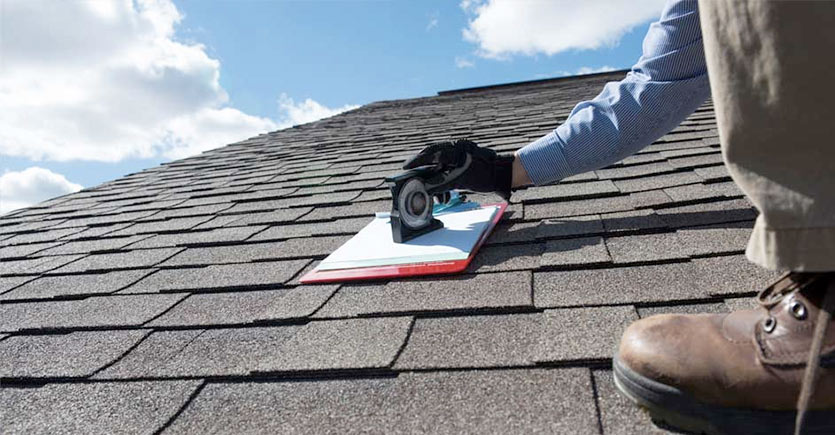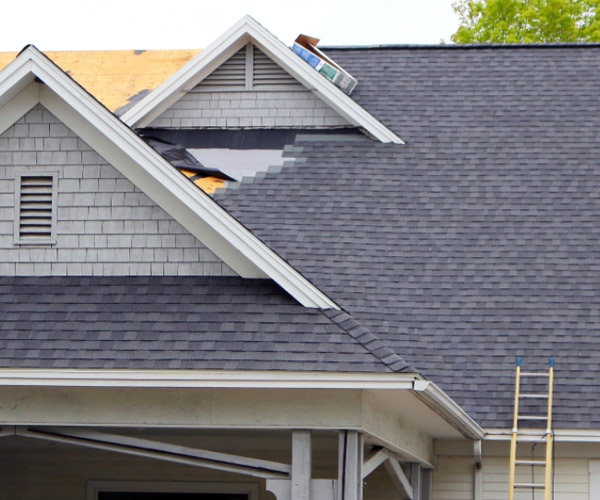How to Review Various Roofing Options for Your Building Needs
Examining roofing alternatives for your building calls for a detailed method that considers numerous elements such as the planned use of the framework, local environment problems, and material features - Toledo Roofer. It is essential to consider the benefits and downsides of different roof kinds, from asphalt shingles to steel and clay floor tiles, while additionally factoring in first expenses and lasting maintenance.
Examining Your Building's Demands
To properly evaluate roof alternatives, begin by completely analyzing your building's demands. Beginning by considering the building's meant use, as different frameworks might necessitate varying roof covering specifications. Household roof coverings frequently prioritize looks and insulation, while business structures might concentrate on longevity and load-bearing capacity.
Next, review the local climate conditions that will influence roof performance. Variables such as temperature level changes, precipitation degrees, and wind patterns can influence product choice and layout. A roof system that excels in a pleasant climate might not carry out as well in locations prone to hefty snowfall or severe heat.
Additionally, analyze the architectural stability of your structure. Make certain that the existing structure can support the selected roofing materials, specifically if thinking about larger alternatives. It is likewise crucial to assess any neighborhood building regulations or guidelines that may dictate details requirements for roof covering systems.

Contrasting Roof Products
As soon as a thorough analysis of your structure's demands has been completed, the next action entails comparing different roofing products. Each product supplies distinct benefits and disadvantages, making it crucial to align your choice with your specific demands and conditions.
Asphalt roof shingles are commonly recognized for their price and simplicity of setup, making them a popular alternative for property buildings. On the various other hand, steel roofing, recognized for its longevity and long life, can stand up to severe weather problems however may feature a higher first investment.
Clay and concrete floor tiles supply outstanding thermal insulation and visual charm, specifically for Mediterranean-style design, yet they require an even more robust architectural support because of their weight. Wood trembles deal a natural appearance and great insulation residential or commercial properties yet may require more upkeep and are susceptible to fire dangers.
Reviewing Cost and Budget
Assessing your roof covering choices demands a cautious analysis of cost and budget factors to consider. The overall spending plan for a roofing job consists of several factors, consisting of material expenses, labor expenditures, maintenance, and potential long-lasting financial savings. It is necessary to develop a clear spending plan before checking out certain roofing materials, as this will assist the decision-making procedure and aid you avoid overspending.
Begin by acquiring quotes from several service providers to recognize labor costs in your region. Guarantee that these quotes include all needed solutions, such as elimination of the old roofing, installment, and any kind of added attributes, like insulation or air flow renovations - Roofer. Next, examine the expense of different roof products, taking into consideration both preliminary setup expenses and expected lifespan

Recognizing Power Efficiency
Energy efficiency plays a vital duty in the option of roof covering products and systems, significantly impacting both energy consumption and overall comfort within a building. A well-chosen roofing system can enhance thermal performance, decreasing the need for heating and cooling systems, which consequently decreases power expenses and minimizes environmental impact.
When assessing roof choices, think about materials that reflect instead of absorb warmth. Light or reflective roof covering items can significantly reduce roofing system surface temperature levels, bring about reduced energy use throughout warm months. Furthermore, proper insulation and ventilation are important to maximize the power effectiveness of the entire roof. Insulation protects against warm transfer, while ventilation minimizes warm buildup straight from the source in the attic room area.
One more important aspect is the roofing system's long life and maintenance needs. Long lasting materials that call for less constant replacement contribute to lasting energy cost savings. Furthermore, the power performance of a roofing system can likewise be evaluated through its compliance with established sustainability scores such as power STAR or LEED.
Taking Into Consideration Aesthetic Charm
A roof's aesthetic allure considerably affects the total appearance of a building, enhancing its architectural style and improving aesthetic appeal. Perrysburg Roofer. When evaluating roof alternatives, it is necessary to think about just how the picked material, color, and design will balance with the existing framework and area. A well-designed roofing system can raise also the most basic of structures, changing them right into aesthetic focal points
Different roofing materials provide different visual high qualities. For instance, typical roof shingles might stimulate a traditional charm, while steel roof covering can present a modern, sleek appearance. Additionally, the color of the roof covering product plays a crucial duty; lighter tones can make a structure appear more spacious, while darker tones might develop a cozier atmosphere.
Furthermore, architectural elements, such as dormers and eaves, can boost the roof covering's aesthetic effect. It is recommended to seek advice from specialist developers or designers to ensure the picked roof choice lines up with the overall layout intent. Eventually, a roofing system ought to not just supply functional advantages however also add positively to the building's visual, reflecting the proprietor's taste and the personality of the surrounding atmosphere.
Conclusion
